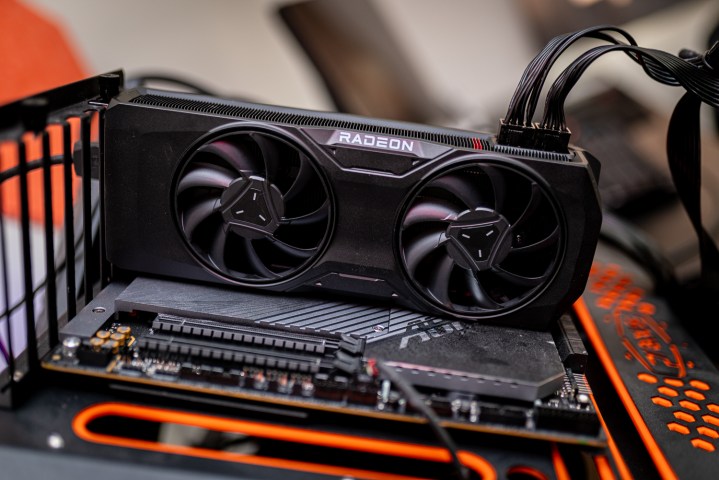
The data for the first quarter of 2024 is in, and it’s bad news for the giants behind some of the best graphics cards. GPU shipments have decreased, and while every GPU vendor experienced this, AMD saw the biggest drop in shipments. Combined with the fact that AMD’s gaming revenue is down significantly, it’s hard not to wonder about the company’s future in the gaming segment.
The report comes from the analyst firm Jon Peddie Research, and the news is not all bad. The PC-based GPU market hit 70 million units in the first quarter of 2024, and from year to year, total GPU shipments (which includes all types of graphics cards) increased by 28% (desktop GPU shipments dropped by -7%, and CPU shipments grew by 33.3%). Comparing the final quarter of 2023 to the beginning of this year looks much less optimistic, though.
Overall GPU shipments decreased by -9.9% in the first quarter of 2024, and AMD’s drop makes up the lion’s share of that figure with a -13.6% decrease, followed by -9.6% for Intel, and -7.7% for Nvidia. As a result, AMD’s market share decreased by -0.7%, while Intel and Nvidia saw small gains. If we look only at discrete GPUs, we’ll see a decrease of -14.8% from last quarter across all manufacturers. Even the CPU market saw a quarter-to-quarter drop of -12.4%, despite great year-to-year results.
The drop in AMD’s market share isn’t a cause for concern — it’s a small number, after all. However, zooming out paints a worrying picture about the future of AMD’s gaming business, particularly its graphics cards.

It’s long been rumored that, in the upcoming RDNA 4 generation, AMD will shy away from making a high-end GPU to try to compete against Nvidia. Instead, it’ll stick to the mainstream market with a GPU along the likes of the RX 7900 XT. For now, this is just a rumor. We’ll probably hear more about it very soon, what with Computex coming up in a few days, but the rumor mill has been so consistent that it very well might be proven true. Nvidia may end up the sole king of the enthusiast GPU market for at least a whole generation.
AMD’s recent earnings call also reinforces the idea that its gaming GPU business may not be at the top of its list of priorities right now. The company’s gaming revenue is down by 48% year over year, and even with new products on the horizon, AMD doesn’t expect an improvement in this regard. Jean Hu, AMD’s chief Financial officer, announced that the company predicts a significant double-digit revenue decline in its gaming segment.
Both AMD and Nvidia are going all-in on their AI and data center businesses. As a result, Jon Peddie Research predicts that Nvidia will ship an astounding well over 2 million GPUs over the course of 2024. While we don’t have a similar figure for AMD, the company makes it clear that its gaming revenue is not a major concern thanks to the revenue from its data center and client segment.
Things may look grim for AMD, but it’s important to remember that the decrease in shipments affected all three manufacturers, and also that seasonality plays a role. With new products on the horizon for AMD, including RDNA 4 graphics cards and Zen 5 processors, it’s clear that the commitment to gaming is still there — but it’s not easy to predict what will happen over the course of the next few years.




